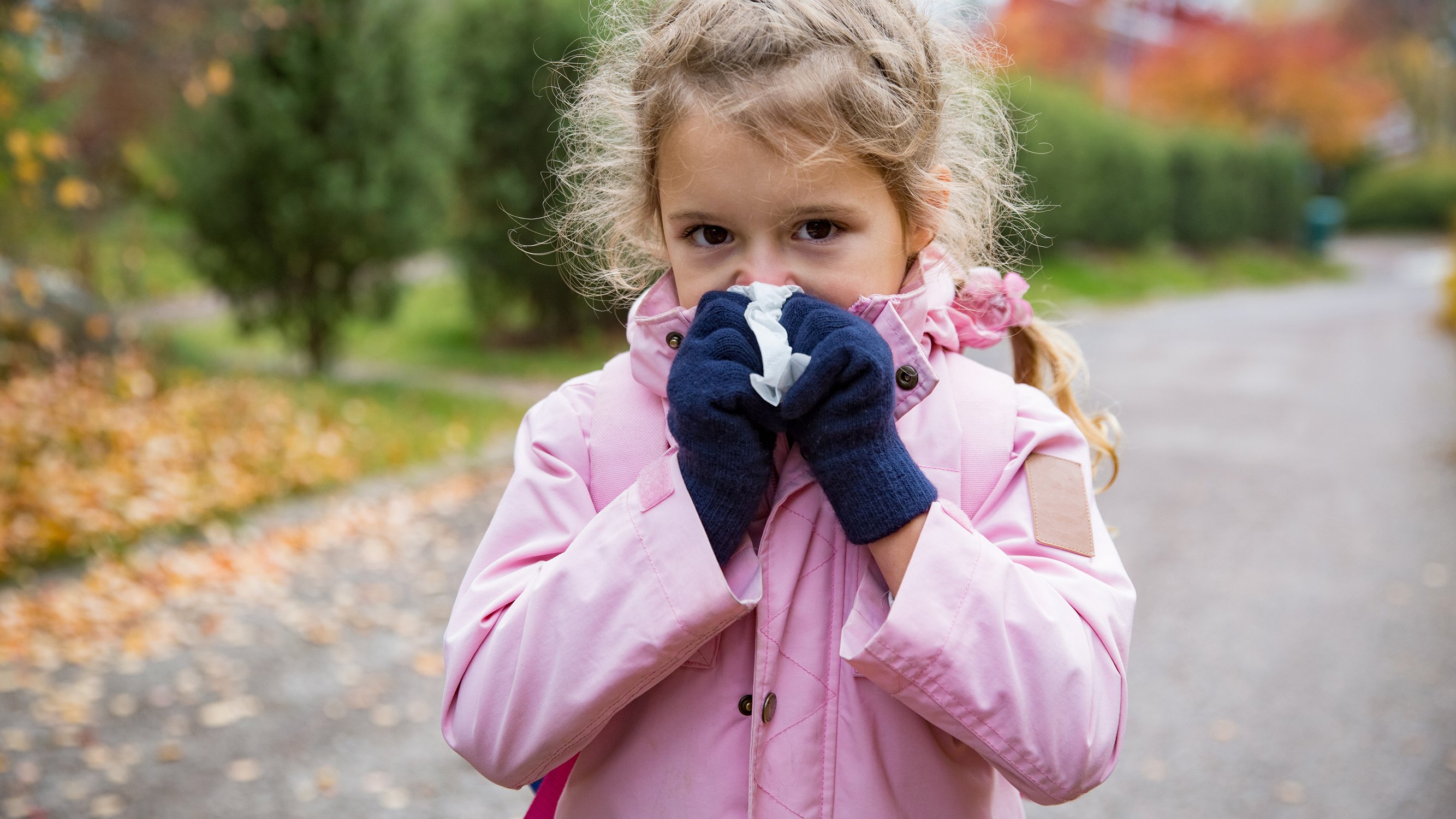Even authorities aren’t sure, but with COVID testing lines snaking around the block and flu season upon us, we need to figure it out.
The first weeks of this school year were always going to be rocky, as families and teachers adapted to all sorts of new COVID-19 rules, including wearing masks, physical distancing and cohorting. One of the thorniest problems, though, turns out to be a condition that returns every autumn: runny noses.
Each September, colds and allergens flourish as kids mingle in often tight facilities. Schools are filled with youngsters reaching for tissues (and sleeves) to wipe their noses. This year, shoving tissues into a backpack isn’t enough, as parents try to decipher whether their child’s runny noses are caused by seasonal allergies, colds or COVID-19. Depending on the rules of each province (and health region), the sniffles could necessitate getting a negative COVID-19 test before a child can return to class. Within days of schools reopening, thousands of parents laid siege to testing centres across the country, children in tow.
Testing delays were inevitable. The worst province for bottlenecks appears to be Ontario. At one testing site in Kitchener, people reportedly began lining up at 2:30 a.m.; by 7 a.m., there were long lines of cars as far as the eye could see. Another testing centre in Ottawa closed minutes after it opened, after waiting residents grabbed every testing spot for the day. Some waited days for results. As of Sept. 24, Ontario reported having more 50,000 tests under investigation, with around 35,000 new ones coming into its laboratories daily.
The pressures on parents and the public health system kept mounting. On Sept. 21, British Columbia removed “runny/stuffy nose” from its student health checklist used by parents each morning, along with sore throat, headache, fatigue, muscle aches and five other symptoms. “If you have a slight runny nose by itself then, that in and of itself is not a reason for a child, and we’re talking about children here, to necessarily stay home from school,” said Dr. Bonnie Henry, the province’s chief health officer. “This was a recommendation from public health to remove some of the symptoms, given the very low probability of these symptoms by themselves indicating COVID,” the provincial ministry of health told the CBC. “They are also very common in children so there are concerns that it would unnecessarily exclude children.”
Other classic COVID-19 symptoms, including a fever, chills and shortness of breath, remain on the B.C. checklist as reasons for kids to stay home, and possibly need a COVID-19 test.
Whether runny noses/nasal congestion is deemed by the province to be a COVID-19 symptom for children (some provinces require two or more symptoms for testing):
For up-to-date information about outbreaks, closures and case numbers in schools across Canada, head here.
Editors’ note: Your particular daycare or school may also have their own specific policy about runny nose symptoms, so be sure to check in with your administrators.
